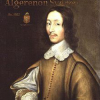Algernon Sidney

Algernon Sidney
Algernon Sidney or Sydneywas an English politician and member of the Long Parliament. A republican political theorist, colonel, and commissioner of the trial of King Charles I of England, he opposed the king's execution. Sidney was later charged with plotting against Charles II, in part based on his work, Discourses Concerning Government, used by the prosecution as a witness at his trial. He was executed for treason. After his death, Sidney was revered as a "Whig patriot–hero and martyr"...
NationalityEnglish
ProfessionPolitician
Date of Birth14 January 1653